Following the opening ceremony and welcoming of all participants and guests to the 11th African Conference on Sexual and Reproductive Health Rights and Family Well-being (ACSHR) by the conference convener, dignitaries and representatives of the organising bodies, the different panel sessions of the event kicked off.
The first plenary session on “Advancing the Sexual and Reproductive Health and Rights (SRHR) of Women and Young People in Africa” explored every aspect of the SRHR scope and reproductive healthcare services, including the “highly important but usually underdiscussed” topic of infertility and assisted reproductive treatments (ARTs).
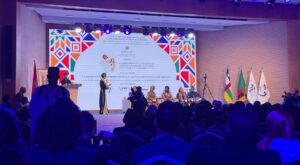
During this session, the panelist – a Ghanaian Lawyer and Human Rights Advocate, Ms Nana Oye Bampoe Addo – emphasised the need for open discussions about infertility, the need for regulation and legislation of assisted reproductive treatments, which is usually fuelled by the premium placed on the fertility of women across Africa. Also, because most often than not, these issues affect the women more in all ramifications, especially in our African society – where bearing children is seen as a sign of fertility and completion of womanhood while infertility is treated as a taboo.
Despite the significant issues surrounding Fertility and other SRHR component in Africa e.g. abortion, we only have a global contraception policy atlas that cover sub-Saharan Africa and the MENA (Middle East and North Africa) region – developed by a group of African SRHR expert – whilst we still refer to and rely on the Fertility and Abortion policy atlas(es) created for Europeans as Africans.
Hence, in line with improving adequate knowledge, accessibility and availability of SRHR services and ARTs, some challenges surrounding these, that were raised included; legal issues, sociocultural bias and cost surrounding surrogacy, In-vitro fertilization (IVF) and women freezing their eggs across different societies; unethical harvesting of eggs and other organs from women and girls or taking advantage of them to harvest, keep or sell their eggs due to their low socioeconomic status; kidnapping, forcefully abducting and continuous sexual violation of women and girls for the sole purpose of getting pregnant, giving birth and their babies been taken from them or sold in different fertility scam or infant trafficking rings.
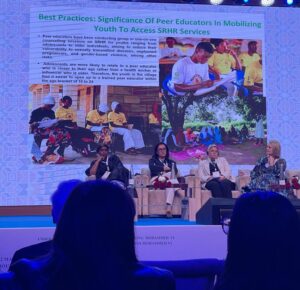
From this panel discussion, some of the recommendations proffered to uphold accountability and stop these inhumane acts surrounding these services are; carrying out some Investigative journalism to expose fertility and reproductive health centres allowing or participating in such unethical practices; reporting to and involving the regulatory bodies and councils that professionally supervise and ethically oversee such practices in our different localities; bringing on board human rights bodies and other agencies that advocate for the health and right of women and girls.
In summary, she stated that advancing SRHR in Africa is not a one-person’s or one-professional’s job, it has to be done together by advocates and champions across the healthcare sector, political and legal system i.e. healthcare workers, lawyers, political leaders etc.
Also, during the afternoon panel session on “Universal Health Coverage: Obstacles and challenges to universal health coverage in Africa”, healthcare and hospital costing, accounting, and funding, as well as the inefficiencies surrounding the supplies and storage of medicines and other associated consumables and equipment were discussed.
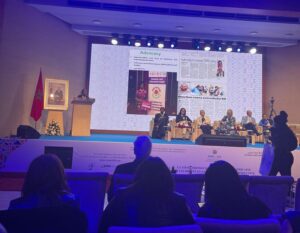
In this session, it was highlighted that costing is related to funding and accounting because these fundamentals are important to provide services effectively and efficiently. Also, because reproductive care and healthcare generally are more service-based than goods-based, assessing the cost revenue of those services – with a lot of direct and indirect costs attached to their delivery – can help to project the cost needed to effectively run the services and maximise the available and accessible funds at hand.
When it comes to healthcare, costing is very important. But today across Africa, most hospitals and healthcare centres don’t rely on this concept appropriately. Therefore, costing analysis must be encouraged, as it is needed to successfully deliver healthcare service and useful in linking information systems in and across hospitals and other healthcare facilities.
Furthermore, since most of the reproductive and healthcare services are rendered via different activities and activities-based costing are done to execute them; one way to cut cost as well as maximise funds, is by reducing or merging similar activities per time. Likewise, to prevent harmful effect on health outcomes, the issue of issue of funding fragmentation must be tackled across board. This can be achieved by providing unique or specific funds for each health issues, so there can be “equity in health care” in all aspects, for all persons and no area is left uncatered for.
Leveraging on existing policies like the Maputo protocol, the African Union (AU) strategy for gender quality and women empowerment, as development partners and stakeholders across our various fields, we must continue to advocate till we win. Especially in area of restrictive SRHR and health equity laws, which in most cases and on the long run affect more women and girls.
On healthcare and hospital accounting, it was advised that curated guidelines for us in Africa be adopted and implemented across facilities. However, recognising the structural and organisational and bureaucratic differences when comparing smaller clinics to large hospitals or private facilities to public facilities, it might be easier to start implementation on smaller scales in places with less bureaucracy – where results and performances can easily be tracked – before cascading on larger scale.
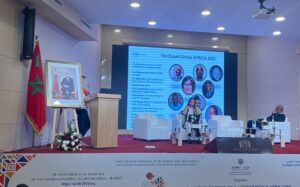
In terms of supplies and storage, similar problems identified across board were the access and cost associated with them, which should be visited. Some examples are, cost of custom duties, storage, oversees shipping and transportation from urban to rural areas, among others. Although, when it comes to medicines and drugs, it was stressed that the issues surrounding their supply and storage can’t be tackled with a single approach but creating a synergy or platform to connect all channels of supply and storage, with the information readily available and in circulation – can go a long way in solving most of the identified problems.
Likewise, a prediction system is needed in Africa, that can be efficient in terms of supply, storage, administration issues and so on. As well as collaboration with the private sector to pull resources together and enhance productive outcomes.
Finally, as Africans and in our various countries, we must look into our market pricing for medicines and healthcare supplies, our health insurance schemes at local and national level, including our adoption protocols and implementation. We must also learn to constructively engage and seek accountability from our leaders in all sectors.
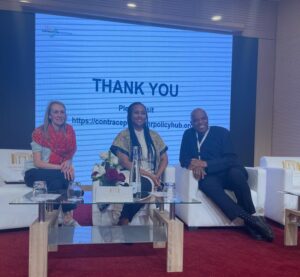
About Author:
Dr. Mary Oluwakemisola Agoyi is a Public Health Expert, Researcher, Healthcare Skills Trainer, SRHR advocate and also the Program Manager of Safer Hands Health Initiative. She is passionate about Maternal & Child Health and actively working in the Adolescent/Youth Friendly service provision space, Community, Primary and Healthcare development sector. With a background in journalism and over 7 years’ experience in writing, content creation, reporting, editing, managing and contributing on various national and international medical/health-related publication committees, platforms and organisations; She believe that proper (medical) documentation and communication across all levels and sectors is key for sustainable development in the health sector and beyond. Her email is kemisolaagoyi@gmail.com.

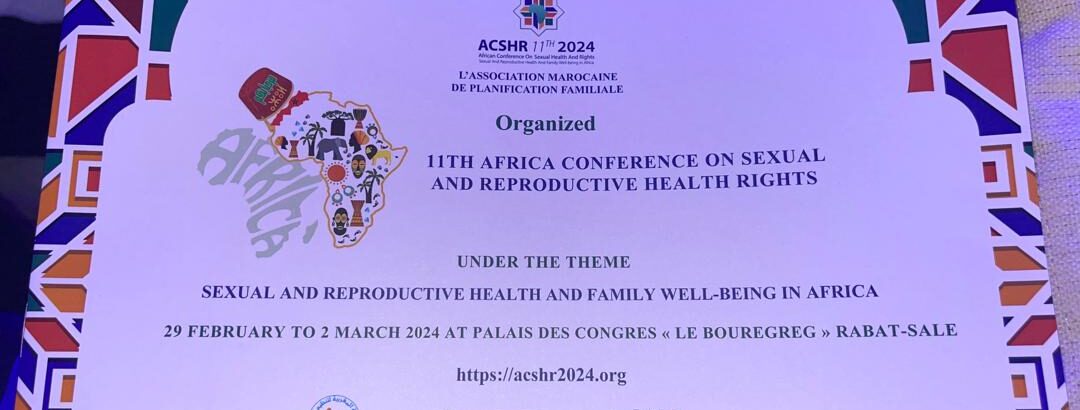
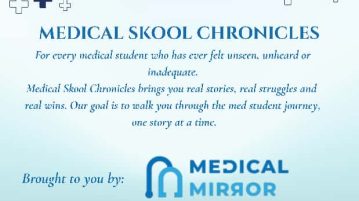
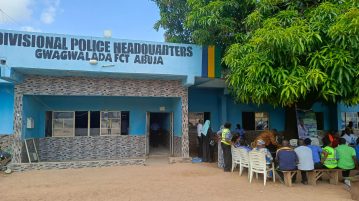
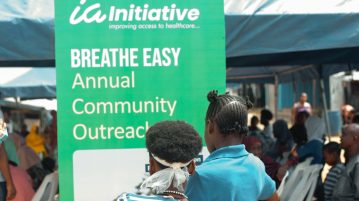
Discussion1 Comment
Pingback: Blockchain Technology in African Healthcare Industry: Use Cases, Challenges and Opportunities (2)